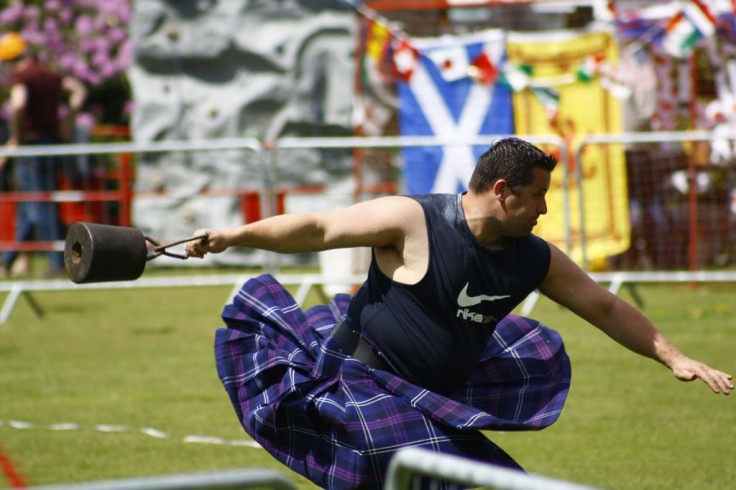Political Motives May Have Origin In Physical Strength

The political motivation of man may not only predate our modern society but also the development of mammal kind, all the way back to the emergence of vertebrates tens of millions of generations ago.
While standard economic models fail to predict the politics of any individual man, upper-body strength — the central component of the human male's fighting ability — serves as a better marker. In a study conducted in Argentina, Denmark, and the United States, men with greater upper-body strength more readily espoused politics favoring their own self-interests.
Stronger men of lower and higher socioeconomic status more readily favored economic policies distributing wealth in their favor, whereas weaker men were less likely to support the same policies, presumably with a lowered interest in acquiring resources.
Lead researchers Michael Bang Petersen of Aarhus University in Denmark and Daniel Sznycer of the University of California in Santa Barbara published the study Wednesday in Psychological Science, a journal of the Association for Psychological Science.
"Despite the fact that the United States, Denmark and Argentina have very different welfare systems, we still see that — at the psychological level — individuals reason about welfare redistribution in the same way," said Petersen. "In all three countries, physically strong males consistently pursue the self-interested position on redistribution."
Petersen said the study showed man, as a political animal, evolved much earlier than the abrupt emergence of modern state politics, some three to 250 generations ago, depending upon the region of the world and its population. "While many think of politics as a modern phenomenon, it has — in a sense — always been with our species," he said.
In the study of political decision-making, many theorists assume that political orientation in modern societies derives from cultural, historical, or social factors without influence from the physical body. However, the new research appears to embody wisdom from the early 20th century French writer, Marcel Proust: "We live not alone but chained to a creature of a different kingdom: our body."
Using the asymmetric war of attrition model, supported by scores of empirical studies across many species of vertebrate, the researchers generalized that human males with greater fighting ability would bargain for a disproportionate share of limited resources. By contrast, weaker men would decline to fight for resources they cannot reasonably defend.
"Our results demonstrate that physically weak males are more reluctant than physically strong males to assert their self-interest — just as if disputes over national policies were a matter of direct physical confrontation among small numbers of individuals, rather than abstract electoral dynamics among millions," said Petersen.
In the theory, weaker men — and women — would benefit much less from aggressive behavior.
To test predictions with regard to the model, the researchers collected data on upper-body strength, socioeconomic status, and political orientation with regard to wealth redistribution. In the three countries, comparing a total of 755 men and 757 women of various ages, the researchers assessed fighting ability by measuring the circumference of the flexed bicep of the dominant arm.
"Many previous studies have shown that people's political views cannot be predicted by standard economic models," said Petersen. "This is among the first studies to show that political views may be rational in another sense, in that they're designed by natural selection to function in the conditions recurrent over human evolutionary history."
The study was funded by the U.S. National Institutes of Health, the Danish Research Council, and the John Templeton Foundation.
Source: Petersen MB, Sznycer D, Sell A, Cosmides L, Tooby J. The Ancestral Logic Of Politics: Upper-Body Strength Regulates Men's Assertion Of Self-Interest Over Economic Redistribution. Psychological Science. 2013.
Published by Medicaldaily.com



























